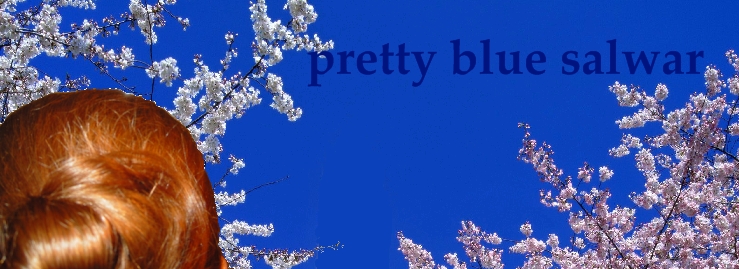Yesterday, while I was waiting for my landlord to restore water to my building, I went to Borders and read Persepolis.
Cover-to-cover, both parts, in one long sitting.
It was fantastic. I want to read it again to catch all of the parts I missed the first time. I wasn't familiar with much of the history (the Iran hostage crisis, yes, but everything else... no, unfortunately), so reading it -- especially with Satrapi's "jumping back and forth in time" narrative -- was like putting together a list; what happened when? Who did what to whom?
When the list became muddled, I gave it up and focused entirely on the characters. The Satrapi family is, after all, the heart of the story. I soon became enveloped in their world, mesmerized by the emotion revealed through pages of simple pen-and-ink:
(Image taken from Amazon's "Search Inside!" feature.)
By the time I reached the second half of the book, I was surprised to see how much I seemed to identify with the character of Marjane. She spent her childhood under the shadow of violence, bombings, and repressed liberty, after all, and I spent my childhood... well, here. But there she was, moved (by her parents, for her own safety) to a boarding house in a country halfway around the world where she didn't speak the language and didn't know anybody, and I thought "yeah, I've been there." The way she negotiated Austria was much the way in which I negotiated India.
Then there was the long section in which Marjane, alone over the holidays, realizes she has nothing to do with her time except read (this is the section in which she makes four trips to the supermarket in one day just because it puts her in contact with other people), and I thought "that's exactly what I am doing now."
Then, of course, the final chapters of the book, in which an adult Marjane, returned to Iran, tries to puzzle out what she should do with her life: should an educated woman pursue a career? a husband? children? How can a woman form an equal relationship with a male partner? How does this fit in with being a citizen who fights for social change? How much can one give up and still be oneself?
I thought "It's the quarter-life crisis!" Even in Iran. Even after a childhood without the privilege and entitlement characteristic of "quarter-life" Americans. Even after being sent away from one's family at fourteen and left to fend for oneself in a foreign country.
Even after a remarkably, unimaginably different life, Marjane and her friends ask themselves the same questions I (and my friends) ask. That's something worth considering.
I can't wait for the movie.
And...
When I got back to the apartment, there was water! Woo-hoo!
Sunday, January 6, 2008
Persepolis: War is Horrible, Family is Wonderful, Art is Beautiful, Quarter-Life Crises are Universal
Posted by
Blue
at
12:41 PM
![]()
Labels: film, identity, literature, politics
Subscribe to:
Post Comments (Atom)



No comments:
Post a Comment